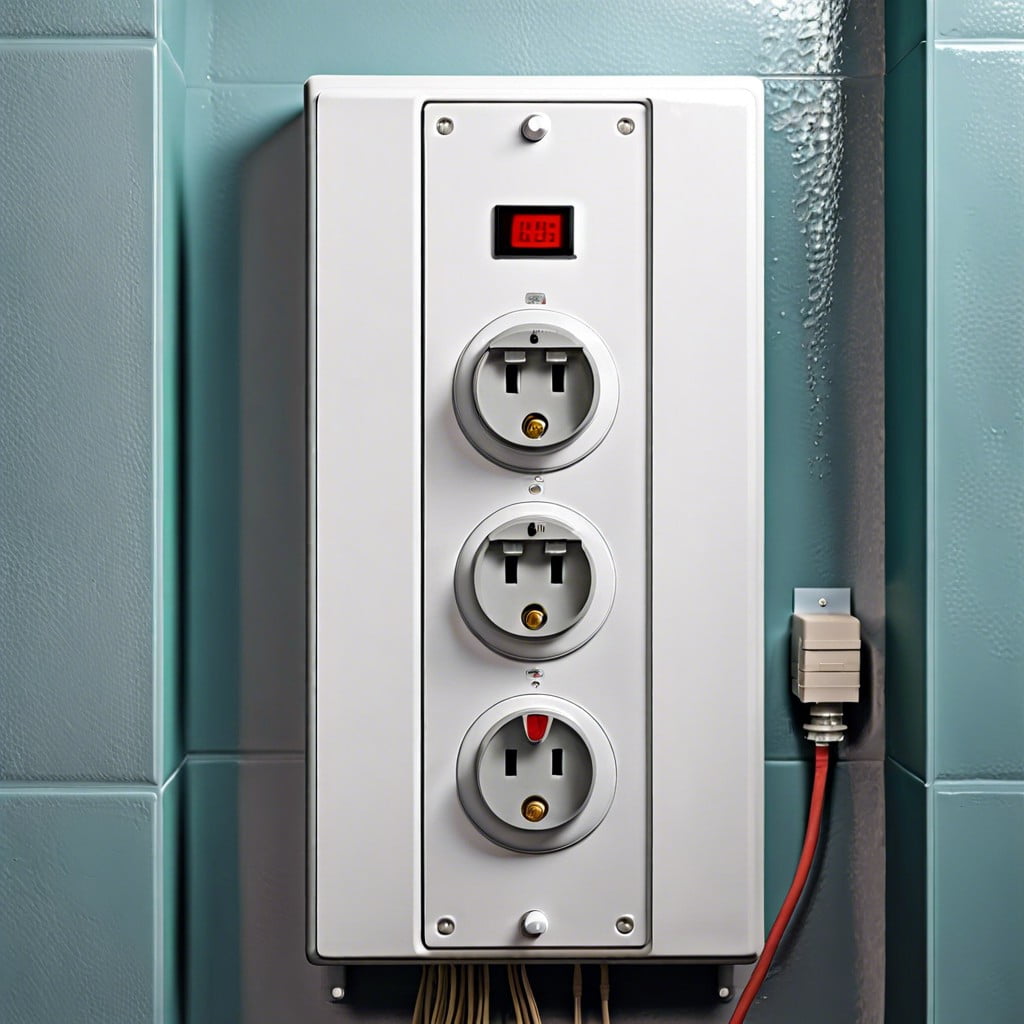Last updated on
Diving headfirst into the intricacies of contractor operations, this piece navigates the often-asked question: Do contractors buy materials?
Key takeaways:
- Expertise Matters: Contractors make informed decisions to avoid errors.
- Streamlined Process: One point of responsibility leads to smoother timelines.
- Risk Reduction: Contractor handles warranties and returns for materials.
- Built-In Savings: Contractors secure materials at lower bulk-buying prices.
- Quality Assurance: Contractors ensure superior materials meet building codes.
Should Your Contractor Buy Materials for Your Project
When entrusting a contractor with your project, there’s a case to be made for allowing them to handle material purchases. Here’s why:
- Expertise Matters: Contractors know the intricacies of the materials that work best for specific projects. Their experience enables them to make informed decisions, potentially avoiding costly errors or the need for replacements.
- Streamlined Process: By having a single point of responsibility, project timelines can be more effectively managed. There’s a smoother flow from the procurement to the installation phase.
- Risk Reduction: Should any issues arise with materials, the contractor, having sourced them, will handle the warranties and returns, reducing your exposure to risk.
Remember, professional contractors aim to balance quality with cost-efficiency. Their reputation hinges on delivering results, and having control over material purchases is often integral to their process of ensuring a job well done.
Pros of Contractor Purchasing Materials
Tapping into a contractor’s bulk-buying power often results in material costs running significantly lower than retail prices. A seasoned contractor likely has established relationships with suppliers, giving them access to industry discounts that a typical homeowner wouldn’t be privy to.
Expertise in quality assurance is another strong suit contractors bring to the table. They know the difference between subpar and superior materials and can ensure that everything from drywall to fixtures meets the project’s standards, as well as building codes.
Moreover, contractors usually offer warranties on the materials they provide. If a material they’ve supplied fails prematurely, it’s on their dime to replace or fix it, giving you an extra layer of financial protection.
Lastly, having the contractor handle materials saves you untold hours you might otherwise spend researching, ordering, and arranging delivery—an underrated convenience during the stressful renovation period. This leaves you free to focus on the design and functionality aspects of your project, trusting in the professional to manage the logistics of material acquisition.
Cons of Contractor Purchasing Materials
Let’s delve into the potential downsides of having your contractor handle material purchases. Firstly, markups – it’s no secret that contractors may add a premium to materials they buy on your behalf. This can inflate your project costs beyond retail prices, impacting your budget.
Secondly, loss of control can be a concern. When you hand over the purchasing reins, you may have less say in the specific products used, which could stray from your vision for the finish or quality.
Additionally, the transparency of material sourcing can sometimes become muddied. Without direct involvement, you might not know the origin or durability of materials, which calls into question long-term value.
Finally, disputes over materials could arise. If your contractor procures subpar materials or the wrong items, resolving these issues might be more complex than if you had managed the process personally.
We Get a Discount
Contractors often have long-standing relationships with suppliers and can secure materials at a lower cost due to bulk purchases and frequent business. This discount isn’t a perk that’s usually extended to the occasional DIY-er or the individual home renovator. Let’s break down why this is a significant advantage:
1. Built-In Savings: Imagine reducing your material costs by a percentage that grows as the volume of materials increases—it’s like having an automatic coupon that gets better with every purchase.
2. Price Stability: Contractors are more likely to lock in favorable prices, possibly even avoiding market fluctuations that can happen over the course of a project.
3. Membership Perks: Some contractors have access to special buying clubs or professional memberships that offer discounts non-professionals simply can’t access.
4. Volume Equals Leverage: As contractors order materials more frequently, they have leverage to negotiate deals an average consumer won’t—the power of repeat business is real.
Harnessing a contractor’s purchasing power can thereby effectively trim the budget, potentially freeing funds for other aspects of your project or even an upgrade here and there.
Benefit of Contractor’s Discount On Bulk Material Purchases
Harnessing the power of bulk purchasing, contractors often secure materials at a reduced cost. This isn’t merely a small percentage off a single purchase but a significant saving that scales with the scope of your project.
Over time, contractors foster relationships with suppliers, negotiating deals that are otherwise unavailable to the average consumer.
This translates into lower overall costs for you, the client. It’s akin to having an access pass into a world of exclusive discounts. And let’s not forget the convenience factor – it’s one less negotiation or shopping trip you have to worry about.
The contractor’s leverage in the market is your financial gain.
We’ll Ensure That the Materials Are Quality
Quality matters immensely when it comes to construction materials, and contractors have the trained eye to distinguish between subpar and superior products. They’re often well-versed in the latest building code requirements and can spot inconsistencies that might be overlooked by the untrained eye. Considering the longevity and structural integrity of a remodeling project, the know-how contractors bring to the table is indispensable.
- Material quality directly impacts the outcome and durability of your project.
- Contractors have relationships with suppliers known for high-quality materials.
- Their expertise allows them to detect defects and avoid inferior products.
- With industry insights, contractors remain updated on the most durable and efficient materials available.
Leaving the selection to a professional means you’re more likely to get materials that offer the best balance of aesthetics, functionality, and longevity. This can ultimately save on future maintenance and replacement costs.
Contractor’s Expertise in Selecting Quality Materials
Navigating the maze of material quality is no small task. Contractors bring a seasoned eye to this aspect, recognizing which materials stand the test of time and which fall short. They understand the nuances of material warranties, the importance of durability in high-traffic areas, and the environmental conditions that could affect the longevity of certain products.
Furthermore, their ongoing relationships with suppliers mean they’re privy to the latest advancements and can thus recommend the most modern, efficient options. By leveraging their expertise, you mitigate the risk of selecting subpar materials that may compromise the integrity of your project or require premature replacement.
You Save Time and Energy
Streamlining the renovation process, a contractor’s role in procuring materials cannot be understated. They have a clearer grasp on the timing and sequence of project phases, arranging for materials to arrive precisely when needed. This coordination is no small feat – it requires deep knowledge of construction timelines that typically only seasoned professionals possess.
Here’s the deal:
- Project Management: Contractors manage the logistical juggling act, sparing homeowners the headache of arranging deliveries amidst their already busy schedules.
- Industry Connections: Leveraging their connections, contractors can synchronize purchases with project milestones, ensuring no delays due to late material arrivals.
- Troubleshooting: Should snags arise, contractors are better equipped to handle them swiftly. Their day-to-day operations involve such problem-solving, minimizing downtime.
By entrusting this crucial task to someone who navigates these waters daily, you’re not just buying materials; you’re investing in peace of mind.
Time and Energy Saved By Having Contractor Handle Material Acquisition
Diving straight into the practicalities, imagine the hours you’d have to invest in researching, comparing, and purchasing the right materials for your project. This doesn’t even factor in the coordination needed for delivery times and potentially handling returns for incorrect or defective items.
With your contractor at the helm, they navigate these logistics seamlessly. They have the know-how to compare material quality and value efficiently, ensuring that the project does not face delays due to procurement issues. Additionally, contractors often have pre-established relationships with suppliers, smoothing the process further.
Factor in the potential for bulk order savings and the reduced likelihood of over-ordering (or worse, under-ordering and facing project delays), and the choice becomes clear. In essence, by delegating this task, you free yourself up to focus on the creative side of your project or simply bask in the anticipation of the finished work, rather than getting bogged down in the minutiae of material management.
Option 1: Contractor Is Responsible for Buying All Materials
Entrusting your contractor with the task of procuring all necessary materials for your project can streamline the renovation process significantly. This approach leverages the contractor’s industry connections to secure wholesale prices, potentially resulting in cost savings on high-quality items that might otherwise be marked up at retail outlets. Moreover, contractors often have access to a broader selection of supplies, providing them insight into the most durable and efficient options available.
Having a single point of accountability for materials could mitigate the potential for miscommunication or errors. Your contractor will coordinate the quantities, delivery schedules, and storage, ensuring that the right materials arrive on time and are available when needed, adhering to the project timeline.
However, this turnkey solution does mean less direct control over the selection of materials. For those with a precise vision, it may be somewhat disconcerting to relinquish this part of the process. It’s imperative to have clear communication and establish trust with your contractor to ensure that your preferences and standards are met.
Always review your contract to understand what is included in the scope of your contractor’s services. Surprises regarding unexpected expenses can be avoided when roles and responsibilities are clear from the start.
FAQ
Do contractors make money on materials?
Yes, contractors typically earn money on materials through a markup that not only accounts for logistical considerations but also serves as protection against possible financial discrepancies.
Do contractor quotes include materials?
Indeed, contractor quotes typically encompass the cost of materials as well as labor fees and quantities involved in the proposed project.
What percentage do contractors mark up subcontractors?
Contractors typically mark up subcontractors by about 100%, which equates to a 2x markup.
How much should a contractor charge for overhead and profit?
In the contracting business, a common industry standard often sees contractors charging around 20% for combined overhead and profit, split evenly with 10% allotted to each category.
How does the selection process of materials influence a contractor’s costing?
The selection process of materials directly influences a contractor’s costing as the cost, quality, and availability of chosen materials can significantly impact the overall project budget.
Should homeowners ever purchase their own materials to cut contractor expenses?
While purchasing their own materials can initially seem like a way for homeowners to cut contractor expenses, in the long term it may result in higher costs due to potential mistakes, lack of warranties and lack of bulk pricing benefits that contractors usually provide.
Is the reliability of a contractor affected by their choice of materials?
Absolutely, the reliability of a contractor significantly depends on their choice of materials as it reflects their commitment to quality and durability.
Recap




